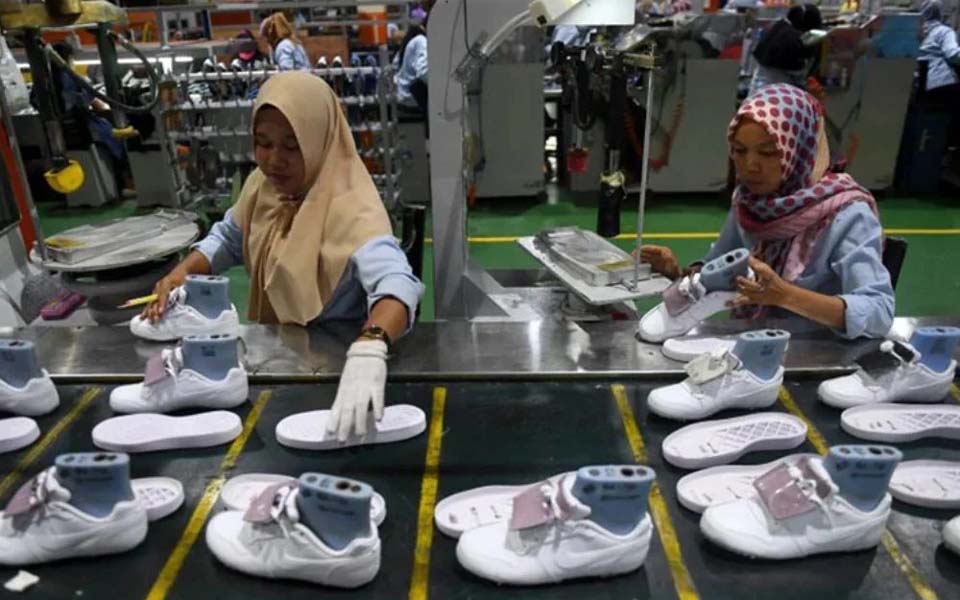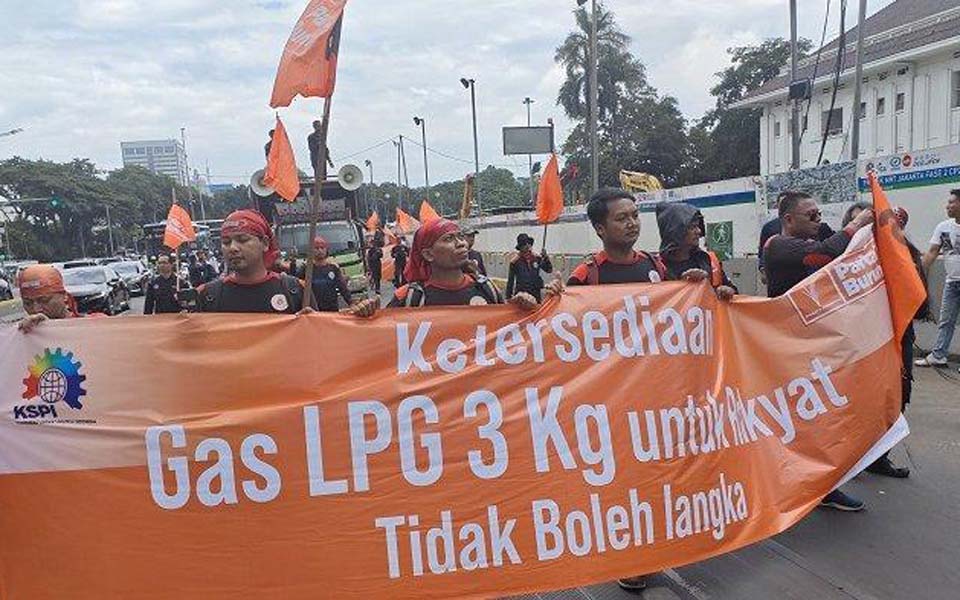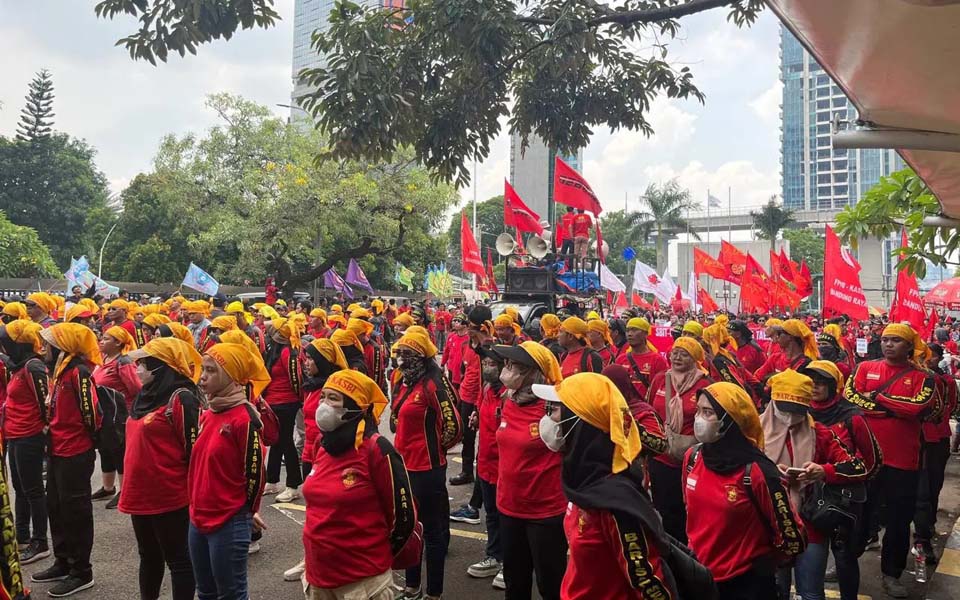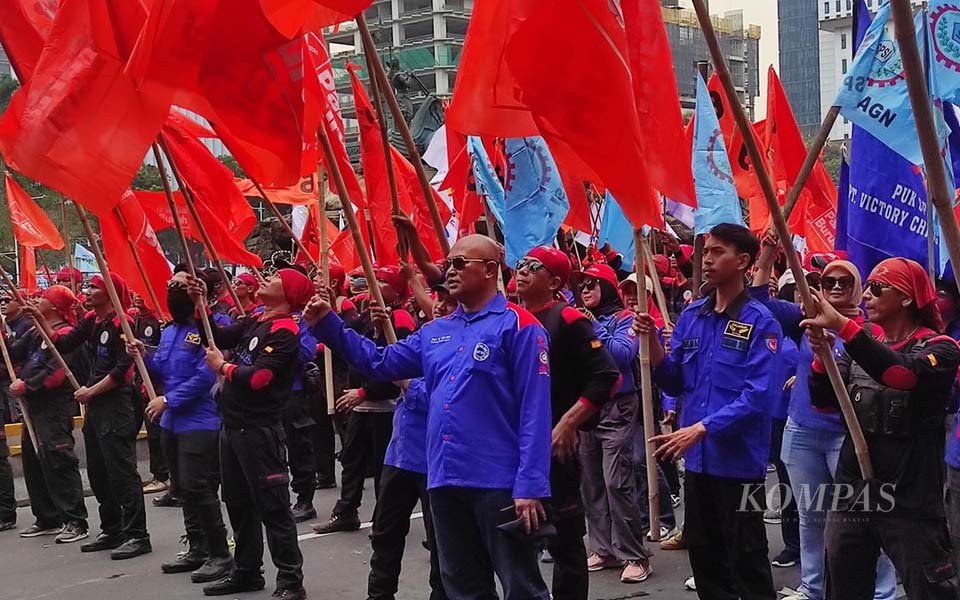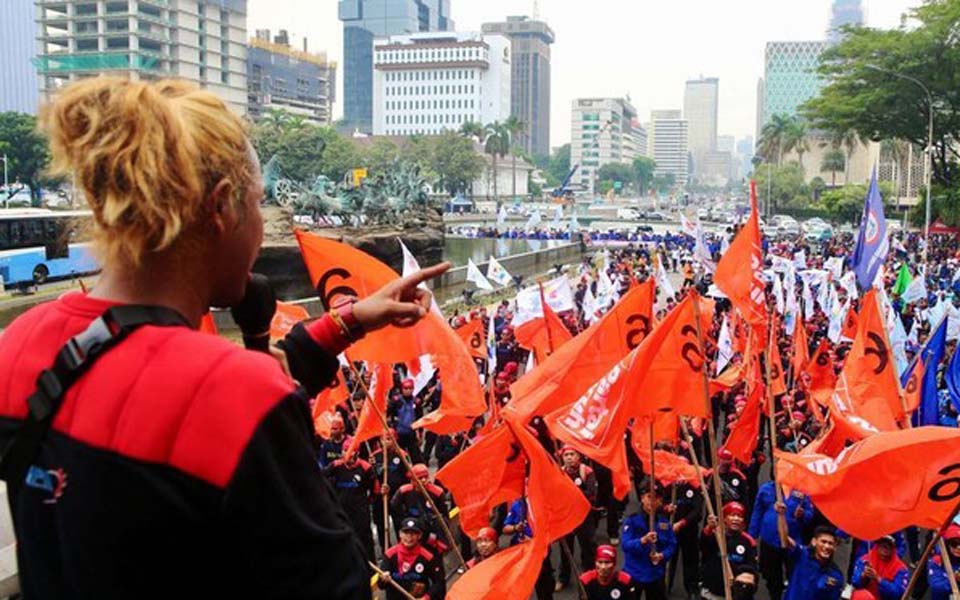Jakarta – The National Statistics Agency (BPS) has announced that in comparison with the second quarter of 2008, in nominal terms the average wage of industrial workers in the third quarter of 2008 has declined by 8.74 percent. In real terms, the wages of industrial workers over the same period have declined by as much as 11.30 percent.
Speaking in Jakarta on Monday January 5, BPS deputy head Ali Rosidi explained that these survey results were obtained by the BPS based on a sample of activities in the formal industry.
“Not all formal industries use the regional minimum wage as a reference. There are other cases where increases in labour costs for companies are not reflected in workers’ incomes, for example in healthcare and transportation facilities”, said Rosidi.
In the third quarter of 2008, the nominal wage of industrial workers averaged 1,095,790 rupiah per month, while in the second quarter of 2008 it was as much as 1,200,772 rupiah. If however this is compared with the third quarter of 2007, an increase has occurred in the average nominal wage of 7.89 percent but real wages for the same period declined by 4.93 percent.
Confederation of Prosperity Labor Unions (K-SBSI) president Rekson Silaban said that the decline in the average nominal wage is an impact of the large number of contract workers. This situation was [not] reflected because the BPS calculated the average nominal wage of formal workers without differentiating between types of employment.
“As soon as it’s taken as an average, the nominal wage of industrial workers declines. This indicates the negative impact of contract labour systems because they are employed under levels of welfare and guarantees that are non-standard”, said Silaban.
Labour intensive industries such as textiles and textile products (TPT), electronics and automotives are currently tending to increase the number of contract workers. Gradually, they are reducing permanent workers in order to bring down costs.
According to Indonesian Metal Trade Workers Federation (FSPMI) president Said Iqbal, almost 80 percent of the employees in TPT industries are now contract labourers. This practice makes it easy for investors to relocate factories and seek more competitive locations.
Iqbal said that nominal wages have tended to increase in concert with minimum wages and periodic pay increases. It is because of this therefore, the increasingly large number of contract workers picked up in the BPS survey is most likely the main factor in the decline in nominal wage levels between February and August 2008.
“What has clearly been happening up until now is a decline in the real wage. FSPMI research results [show that] the 2004 Jakarta provincial minimum wage, which stood at 671,600 rupiah per month, was more adequate that the 2009 minimum wage of 1,069,000 per month. Although there has been an increase in the nominal [wage] of almost 80 percent, the value of the real minimum wage for 2009 is only around 700,000 or so”, said Iqbal.
Unemployment rate
Also on Monday, the BPS announced that the unemployment rate for August 2008 had declined to 8.39 percent compared with the February 2008 figure of 8.64 percent, or the August 2007 unemployment rate of 9.11 percent.
The quality of the decline in the unemployment rate however remains unsatisfactory. The deputy head of the BPS’s social statistical division, Arizal Ahnaf, explained that the increase in employment opportunities has mostly taken place in the social service sectors, particularly domestic workers, construction workers and cleaning staff. (DAY/HAM)
[Translated by James Balowski.]







